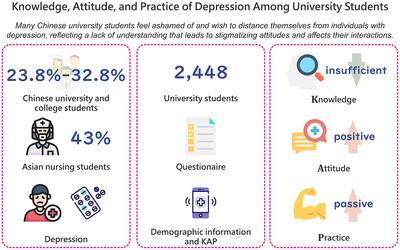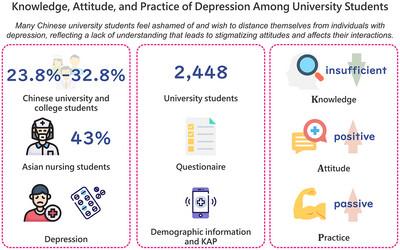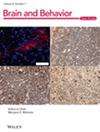Knowledge, attitude, and practice of depression among university students
Abstract
Introduction
This study aimed to investigate the knowledge, attitude, and practice (KAP) of depression among university students.
Methods
A cross-sectional survey was carried out across randomly selected universities in Shandong Province from October 25, 2023, to November 8, 2023. Demographic information and KAP scores were assessed through the administration of questionnaires. The reliability of the questionnaire was confirmed with a Cronbach's alpha coefficient of 0.816 and the Kaiser–Meyer–Olkin measure of 0.894.
Results
This study included 2448 university students, with 1489 (60.8%) females. The median scores for KAP were 20 (Interquartile Range (IQR): 17–21), 26 (IQR: 23–28), and 35 (IQR: 32–38), respectively. Multivariate regression analysis indicated that being a junior (odds ratio [OR] = 0.720, 95% Confidence Interval (CI): 0.538–0.965, p = .028), senior or above (OR = 0.474, 95% CI: 0.325–0.691, p < .001), having divorced parents (OR = 0.618, 95% CI: 0.409–0.933, p = .022), having direct relatives with depression (OR = 0.710, 95% CI: 0.589–0.856, p < .001), and lacking intimate friends (OR = 0.344, 95% CI: 0.245–0.484, p < .001) were negatively associated with practice. Only having an attitude score of ≥26 (OR = 5.076, 95% CI: 4.230–6.091, p < .001) was significantly and positively associated with practice.
Conclusion
University students had insufficient knowledge, positive attitude, and passive practice toward depression. Clinical interventions should focus on enhancing the understanding and management of depression among university students, particularly through targeted educational programs and support groups, to bridge the gap between knowledge and practice and foster a proactive approach to mental health care.



 求助内容:
求助内容: 应助结果提醒方式:
应助结果提醒方式:


